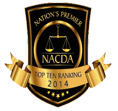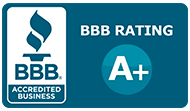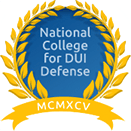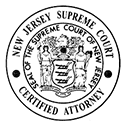New Brunswick NJ Child Pornography Defense Lawyer
Child pornography is something that law enforcement takes very serious as it involves exploitation of children. Local police in Woodbridge, Piscataway, New Brunswick, East Brunswick and other municipalities, as well as detectives in the Middlesex County Prosecutor’s Office, are active in attempting to identify those who view, possess, produce, sell or distribute child pornography. If you have been charged with possession of child pornography, distribution of child pornography or a related offense, you will undoubtedly be pursued aggressively in terms of conviction. This is one of many reasons why you cannot defend this type of charge without representation by an attorney who is experienced in defending child pornography cases in New Brunswick at the Middlesex County Superior Court. The lawyers at The Law Offices of Jonathan F. Marshall have the level of skill you are looking for with several former prosecutors on staff, including Jason Seidman, a former supervisor in the Office of the Middlesex County Prosecutor. The following is some important information that you probably are interested in knowing regarding child pornography charges. One of our New Brunswick child pornography defense lawyers is available at 732-246-7126 to address detailed questions and/or to discuss how we would go about best representing you.
Charged With Possession or Distribution of Child Pornography in Middlesex County New Jersey
In accordance with the New Jersey Child Pornography Law, N.J.S.A. 2C:24-4, there are basically four (4) categories of violation. You can be charged with a child pornography offense under this law by:
- causing a child to engage in child pornography;
- filming children engaged in child pornography;
- distributing child pornography; and
- possessing or viewing child pornography
All four of these charges are a crime and therefore can only be heard at the County Courthouse in New Brunswick. This is where offenses of the second degree, third degree and fourth degree are adjudicated. In order for you to be convicted under 2C:24-4, the prosecutors must establish certain elements, beyond reasonable doubt. The following headings discuss some of the important aspects of these requirements.
In order for any variety of child pornography to be proven by the state, the material in question must constitute “child pornography”. A film, photograph, or other item is child pornography when it depicts a child engaging in a prohibited sexual act, including:
- sexual intercourse (including anal);
- fellatio;
- cunnilingus;
- masturbation;
- bestiality; and
- nudity depicted for purposes of sexual stimulation.
In determining whether the individual depicted in a photo or video appears to be under the age of sixteen (16), the state is permitted to presume that the child satisfies the age limitation. Provided that this presumption is reasonable, it is then the burden of the accused to prove that the individual depicted is sixteen (16) or older.
Possession of Child Pornography
As previously stated, it is crime to knowingly possess or view anything that depicts a child engaging in a prohibited sexual act or in the simulation of such an act. The biggest block of these violations concern internet websites and viewing. For purposes of this variety of child pornography, the term “possess” or “possession” means to receive, view or control. It is no defense to the charge of possession of child pornography that the defendant lacked knowledge that the child was under sixteen.
Knowingly possessing, viewing or controlling child pornography is a third degree crime. An individual faces a prison term of up 5 years and fine that can reach $15,000. In addition, if the offense involves 100 or more images/depictions, the court is supposed to impose a period of incarceration unless it finds that a serious injustice would result by the defendant being incarcerated (i.e. sent to prison or the county jail). If the accused is a repeat offender, meaning that he has a prior conviction for possession of child pornography, he or she subject to an extended term of imprisonment.
If the child pornography offense is limited to copying an image of child pornography from the internet, the violation is a fourth degree crime. The penalties for fourth degree child pornography include up to 18 months in prison and a fine of $10,000.
Distribution of Child Pornography
It is a second degree crime to distribute, cause to be produced, film or publish a photograph, film, video tape or reproduction, including on the internet, that contains child pornography. It is also a second degree crime to maintain child pornography on a file sharing network that is accessible to others by computer. An individual convicted of distributing child pornography or another second degree pedigree under 2C:24-4 is subject to a state prison term of 5-10 years and a fine of up to $150,000. The largest percentage of distribution cases involve some form of file sharing over the internet. Individuals convicted of a second degree child pornography charge are also required to register as a sex offender under Megan’s Law. Pornography carries a period of incarceration of up to 18 months and a fine that can reach $10,000.
Child Pornography Attorneys in New Brunswick
Our firm, The Law Offices of Jonathan F. Marshall, has been defending sex offenses at the Superior Court in New Brunswick for decades, including child pornography charges. More importantly, we have a long track record of success stories in representing individuals charged in Edison, Old Bridge, Piscataway, Perth Amboy, South Brunswick and other towns with either possession or distribution of child pornography. An attorney on our defense team is prepared to review the facts of your case and discuss how we can assist you in eliminating or minimizing your exposure to penalties. An arrest or indictment is not the end of the criminal process but, rather, the start. A skilled lawyer on our staff is prepared to make sure you have the opportunity to reach the best outcome. Give our New Brunswick office at call now at 732-246-7126 for a free initial consultation.













